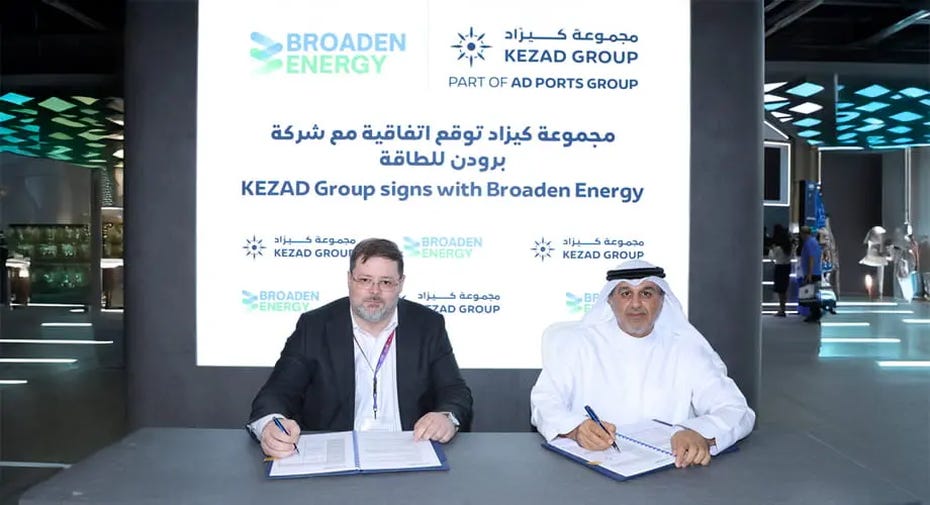European Commission Unveils €992M Boost for Renewable Hydrogen Projects Across Europe
And for the first time, with three maritime projects on the list…
News to watch closely…

The European Commission announces funding of €992 million ($1.1 billion) for 15 renewable hydrogen projects across Spain, Finland, Germany, the Netherlands, and Norway. Selected under the second European Hydrogen Bank (EHB) auction, these projects are expected to collectively produce 2.2 million tonnes of renewable hydrogen over the next decade while preventing over 15 million tonnes of CO₂ emissions. For the first time, a dedicated budget addressed hydrogen production for maritime off-takers, with three projects receiving €96.7 million in grants, all based in Norway: RjukanH2 developed by Norwegian Hydrogen, Gen2-LH2 developed by Gen2Energy, and HammerfestH2 developed by Green H.
Additionally, Spain, Lithuania, and Austria are allocating up to €836 million in national funding through the "Auctions-as-a-Service" scheme. This approach enables member states to support projects that meet EU criteria but exceed the Innovation Fund’s budget, ensuring broader participation. A third auction is anticipated by late 2025, with a budget of up to €1 billion, alongside the introduction of the Hydrogen Mechanism, an online platform fostering transparency and market connections for hydrogen transactions.
U.S.-based Infinium starts construction on Project Roadrunner, its second e-fuels production facility in Texas. Set to become the largest of its kind globally upon completion, the plant will produce 23,000 tonnes per year of sustainable aviation fuel (eSAF) and other e-fuels. Supported by major investors like Brookfield Asset Management and Breakthrough Energy Catalyst, the facility aims to advance a hydrogen supply chain and provide sustainable fuel alternatives for aviation giants such as American Airlines and British Airways. It is expected to begin operations by 2027.
UAE’s Masdar successfully raises $1 billion through its latest green bond issuance. The funds, collected in two tranches of $500 million each, will exclusively support greenfield renewable energy projects globally. This marks Masdar's third green bond offering, bringing its total raised funds to $2.75 billion since 2023. The company recently expanded its Green Finance Framework, enabling investments in green hydrogen and standalone battery storage projects alongside traditional renewable ventures.
Japan’s government has unveiled a significant subsidy program to accelerate the adoption of hydrogen-powered commercial vehicles. Through this initiative, the Ministry of Economy, Trade and Industry (METI) will provide targeted incentives to promote hydrogen refueling in six administrative regions characterized by high demand, including Tokyo, Kanagawa, Fukushima, Aichi, Hyogo, and Fukuoka. These areas were chosen due to their strong regional support, with Aichi Prefecture already planning to deploy 7,000 hydrogen-powered trucks and buses by 2030.

The Khalifa Economic Zones Abu Dhabi (KEZAD) and Broaden Energy sign a 50-year land lease agreement to build the largest hydrogen manufacturing facility in the Middle East at KEZAD Area A, Abu Dhabi. Spanning 80,000 square meters, the facility is backed by AED 455 million (approximately $124M) in investments and will focus on producing hydrogen generation, refueling, and storage systems.
Maritime
The Port of Amsterdam and the Newfoundland & Labrador government signed a Memorandum of Understanding to establish a green hydrogen corridor connecting Canada to Europe. This collaboration will focus on identifying sustainable hydrogen trade routes, addressing regulatory and market challenges, fostering investments in supporting infrastructure, and piloting early-stage feasibility projects. Newfoundland and Labrador have been singled out as an optimal location for large-scale hydrogen production due to its consistent wind resources, abundant freshwater, expansive land, and reliable deep-water ports.
South Korea’s leading an initiative to build the world's largest liquid hydrogen carrier: With $39.5 million in funding from the Ministry of Trade, Industry, and Energy, the project enlists collaboration from leading shipbuilders like Hyundai Heavy Industries, Hanwha Ocean, and Samsung Heavy Industries, alongside universities and research institutes.
The timeline includes the construction of a 2,000-cbm demonstration vessel by 2027, followed by scaling up to a 40,000-cbm ship by 2032, and culminates in the commercial launch of a massive 160,000-cbm hydrogen carrier by 2040.
📣 Save The Date!
Join us at the fourth edition of the Monaco Hydrogen Forum, held under the High Patronage of H.S.H. Prince Albert II of Monaco, on December 1-2, 2025, at the iconic Hotel Hermitage Monte Carlo.
The two days of high-level dialogue, and collaboration will bring together industry leaders, policymakers, founders and leading investors, committed to placing renewable hydrogen at the heart of energy transition strategies.
👉 Register now and take advantage of the early bird rates until June 25, 2025. Stay tuned for agenda details and speaker lineup—coming soon!
Aviation

ZeroAvia teams up with England’s RVL Aviation to retrofit Cessna Grand Caravan 208B aircraft with its cutting-edge hydrogen-electric ZA600 powertrain. The collaboration aims to enable commercial flights across the British Isles once the powertrain and airframe integration receive the necessary certifications.
Meanwhile in Scotland, ZeroAvia secured £9 million ($12 million) in funding from the Scottish government to establish a Hydrogen Center of Excellence near Glasgow Airport. This new facility will focus on manufacturing advanced hydrogen-electric propulsion systems, specifically high-temperature proton membrane fuel cell stacks. It will operate alongside ZeroAvia’s existing Propulsion Center of Excellence in Washington state and its research hub at Cotswold Airport, England.
German startup Evia Aero secures deal with Australian company Stralis Aircraft. The agreement involves the acquisition of six Beech 1900D-HE aircraft retrofitted with Stralis’ advanced hydrogen-electric propulsion systems. Designed to carry up to 15 passengers, these aircraft can cover distances of 800 kilometers at speeds of approximately 500 km/h.
Land Transportation
Mitsubishi Fuso and Iwatani Corporation have signed a Memorandum of Understanding to develop and implement subcooled liquid hydrogen (sLH2) refueling technology for hydrogen-powered commercial vehicles in Japan. The partnership will focus on three critical areas. Firstly, it will center on the technical development of sLH2 refueling systems, advancing the technology required to support hydrogen-powered mobility. Secondly, the collaboration will involve a thorough examination of regulatory and certification frameworks to ensure compliance and alignment with global standards. Lastly, it will explore commercial applications and marketing strategies aimed at promoting the adoption and growth of hydrogen-powered mobility solutions.




